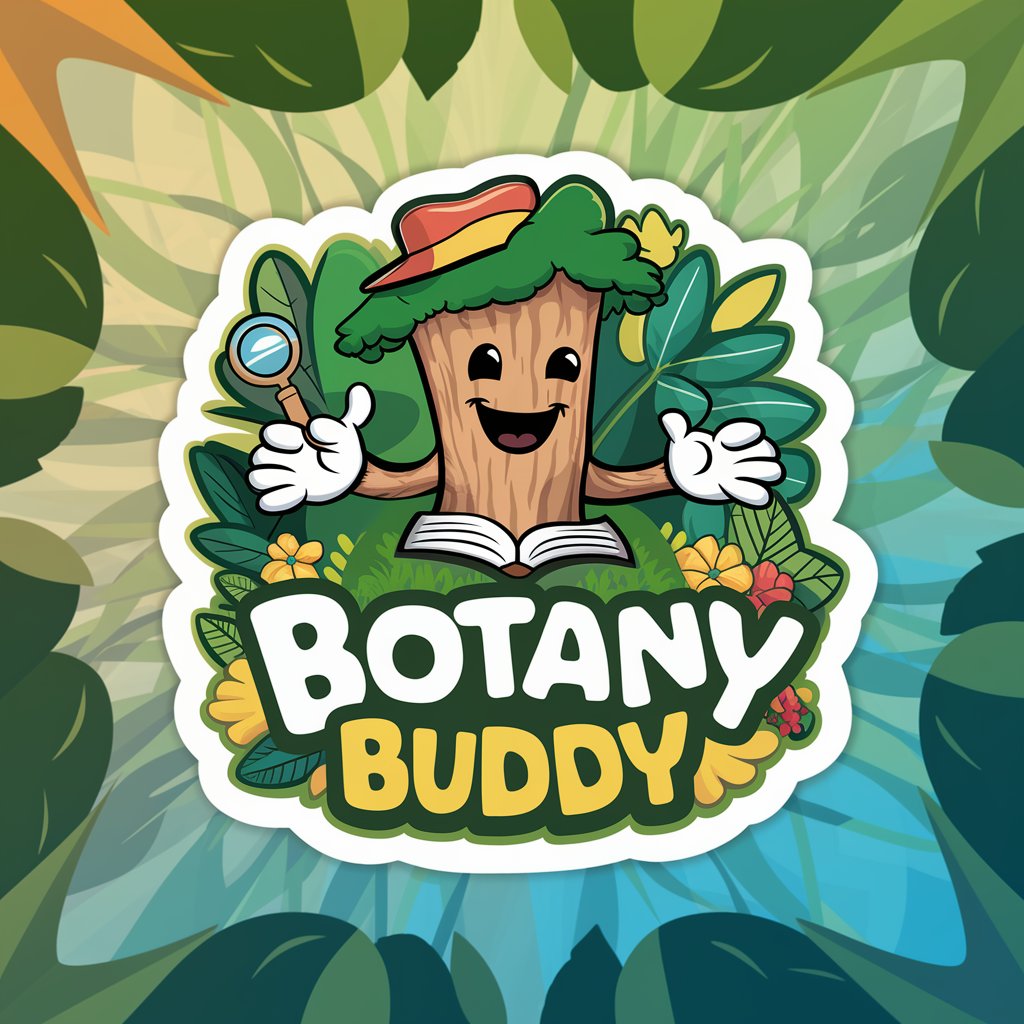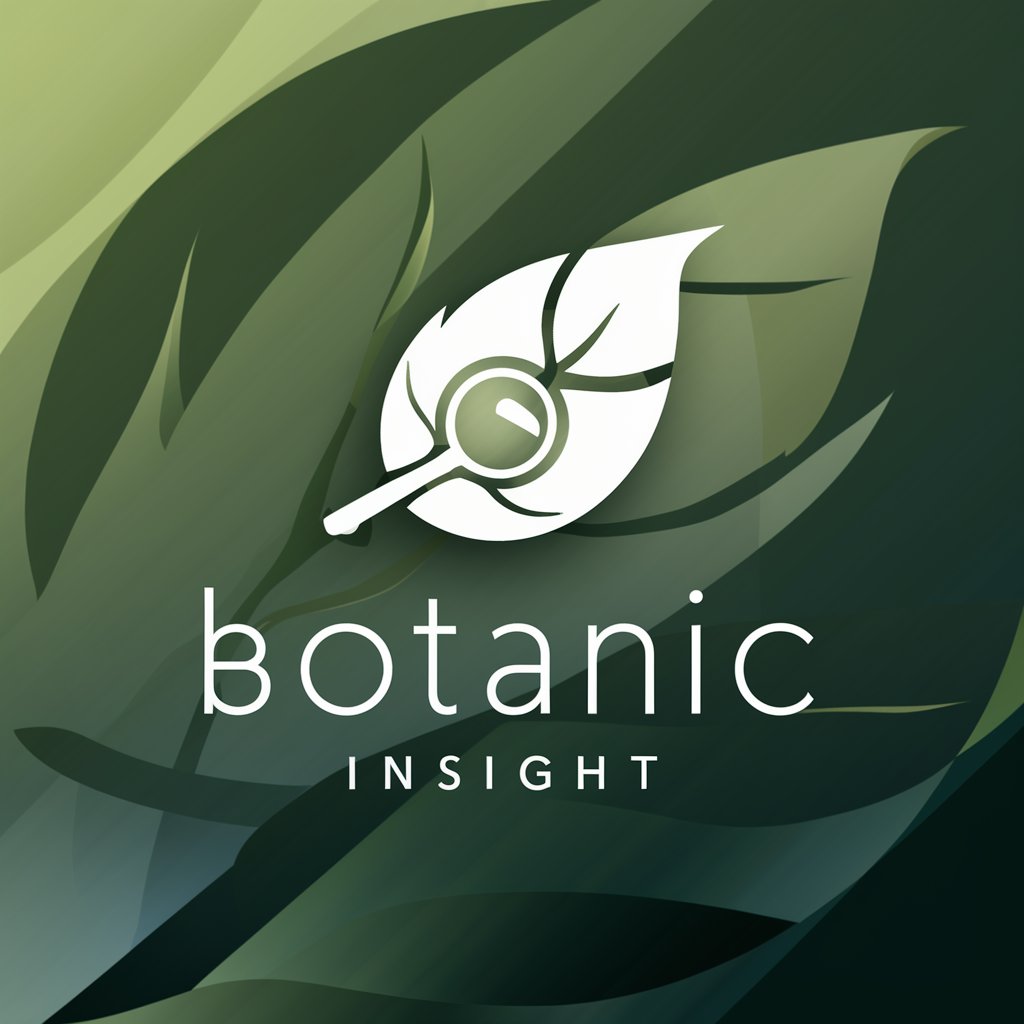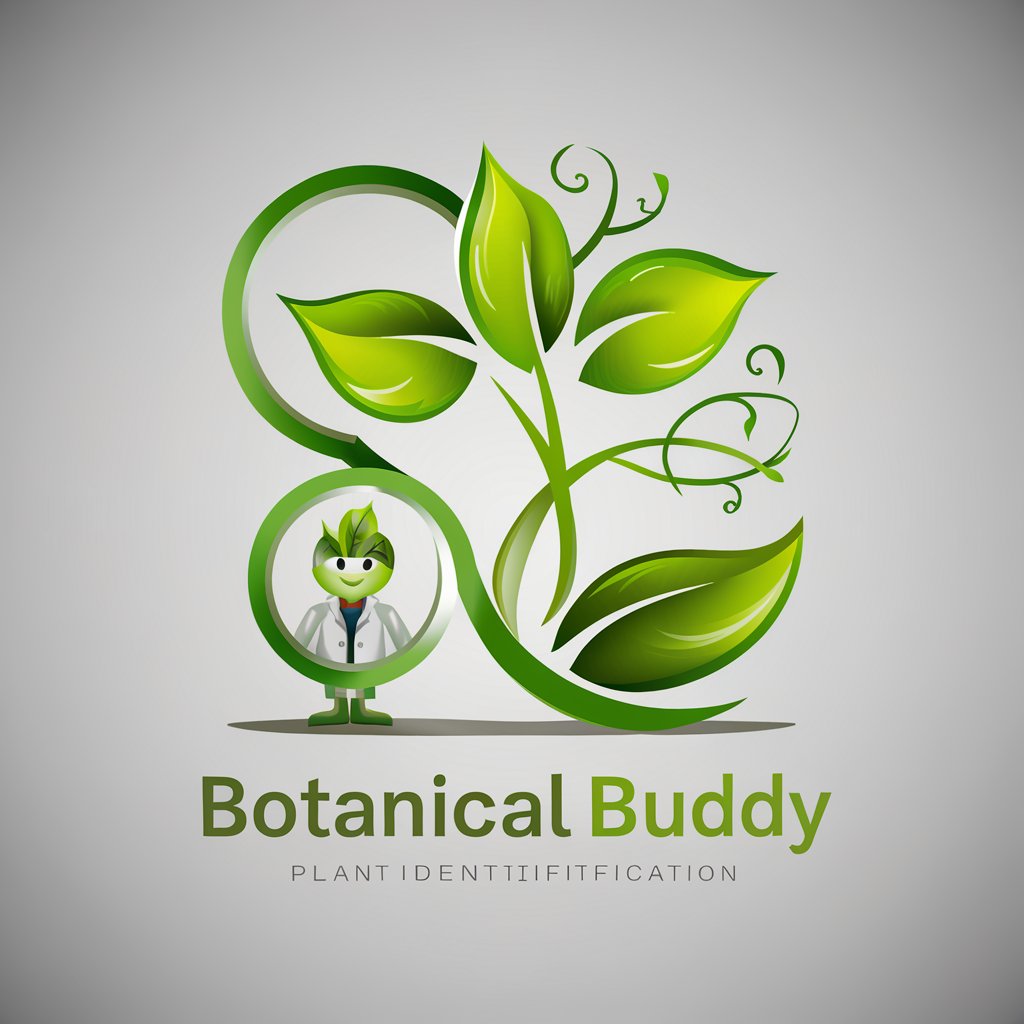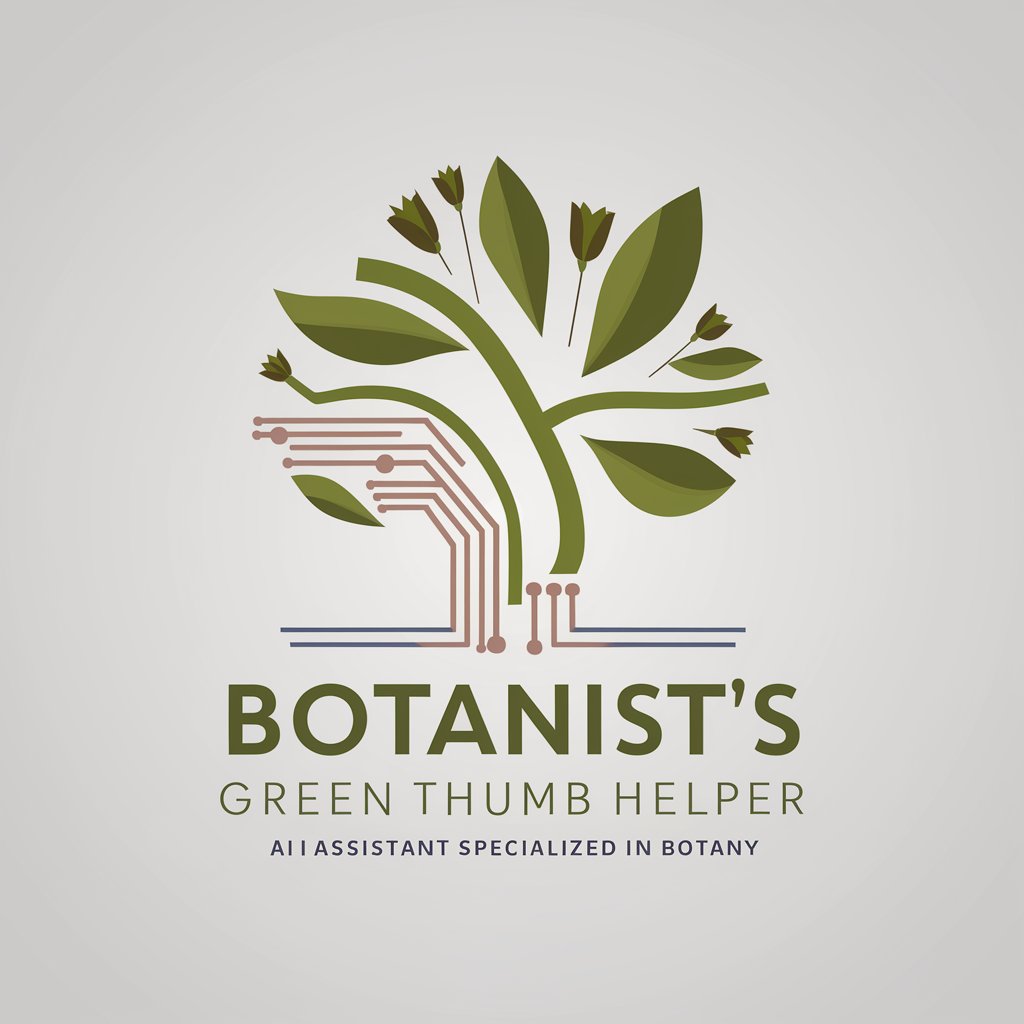
🌱 BotanyBasis: Plant Science Tracker 🌿 - Plant Growth Tracking

Empowering Plant Care with AI
Help
Daily Briefing
I Want My Own GPT!
Feedback
How often should I water my succulents?
Can you identify this plant from a photo?
What's the best fertilizer for orchids?
Get Embed Code
Introduction to 🌱 BotanyBasis: Plant Science Tracker 🌿
BotanyBasis: Plant Science Tracker is a specialized AI designed to assist users in monitoring and enhancing the growth and health of their plants. It provides tailored care guides, identifies plant species, diagnoses plant diseases, and recommends optimal watering and fertilization routines based on scientific research. This tool integrates botanical knowledge and leverages image processing technology to offer precise plant care advice, ensuring that users can make informed decisions about their plant care practices. Powered by ChatGPT-4o。

Main Functions of 🌱 BotanyBasis: Plant Science Tracker 🌿
Plant Identification
Example
A user uploads a photo of a plant, and the system identifies it as a Monstera deliciosa, providing care instructions specific to that species.
Scenario
An individual receives a houseplant as a gift without any care instructions. Using BotanyBasis, they can quickly identify the plant type and receive a tailored care guide.
Disease Diagnosis and Treatment
Example
The system analyzes a submitted image of a plant with yellowing leaves and diagnoses it with a nitrogen deficiency, suggesting appropriate fertilization adjustments.
Scenario
A gardener notices discolored leaves on their tomato plants. By consulting BotanyBasis, they receive a diagnosis and treatment recommendations, helping them address the issue promptly.
Watering and Fertilization Schedules
Example
Based on the plant species and local climate data, BotanyBasis recommends a watering schedule to optimize the plant's health.
Scenario
A user new to gardening is unsure how often to water their succulents. BotanyBasis provides a customized watering schedule, preventing over or under-watering.
Ideal Users of 🌱 BotanyBasis: Plant Science Tracker 🌿
Home Gardeners
Individuals who enjoy gardening at home and seek to optimize the care of their indoor or outdoor plants. They benefit from personalized advice on plant care, disease treatment, and growth monitoring.
Agricultural Professionals
Farmers or agricultural technicians who require accurate information on crop health, pest management, and optimal fertilization practices. BotanyBasis aids in making data-driven decisions to improve crop yield and health.

How to Use BotanyBasis: Plant Science Tracker
Start Free Trial
Initiate your journey by visiting a platform offering a hassle-free trial, ensuring immediate access without the necessity of signing up or subscribing to premium services.
Identify Your Plant
Utilize the image recognition feature to identify your plant species. Simply upload a photo of your plant, and the tracker will provide you with its name and care information.
Monitor Plant Health
Regularly record your plant's growth and health status by entering details about its appearance, height, and any visible issues. This helps in tracking progress and identifying potential problems early.
Receive Care Recommendations
Based on the data provided, get tailored care advice including watering schedules, fertilization tips, and sunlight requirements to ensure your plant thrives.
Explore Plant Science
Dive deeper into the world of botany by accessing a wealth of plant science research, articles, and tutorials available within the tracker to enhance your knowledge and care skills.
Try other advanced and practical GPTs
🔬 ImmunoInquiry Research Assistant 🧬
Empowering Immunology Research with AI

🛢️ PetroProbe Geo-Assist AI 🌍
Revolutionizing Petroleum Exploration with AI

🌥️ MeteorologyMapper 🌀🔍
Forecasting the Future with AI

🧠 NeuroplasticityNavigator
Empowering Neuroplasticity Understanding with AI

🔬 PathogenPatrol: Disease Detective 🕵️♂️
Empowering disease detection with AI

🌿🧬 EvolutionEyes - BioSimulator 🐾🔬
Simulating Evolution, Powering Discovery

🧬 GenomeGuide for CRISPR & Research 🧪
Empowering Genetic Research with AI

📊 StatSupport Wizard 🧙♂️✨
Demystifying Statistics with AI

🌊 OceanOculus: Ocean Data Visualizer 📊
Visualize Marine Data with AI

🦠 VirologyVault: Strain Tracker 🧬
Mapping Viral Evolution with AI

🌿ClimateCorrelator for Eco-Research🔍
Empowering eco-research with AI-driven insights

🧬 EnzymeExplorer Lab Assistant 🔬
Empowering enzymology research with AI

Frequently Asked Questions about BotanyBasis: Plant Science Tracker
How accurate is the plant identification feature?
The plant identification feature uses advanced image processing and a comprehensive database of plant species to ensure high accuracy in recognizing various plants and their specific needs.
Can I track multiple plants with this tool?
Absolutely! BotanyBasis allows you to monitor the health and growth of multiple plants simultaneously, providing each with customized care advice based on its unique requirements.
How does BotanyBasis help with plant diseases?
By analyzing symptoms and conditions reported by users, the tool offers diagnostic insights and suggests effective treatment options for common plant diseases, backed by scientific research.
Is there a community or support system for users?
Yes, users can access a forum and support system where they can share experiences, seek advice from fellow plant enthusiasts, and find answers to their questions from experts.
How often should I update my plant's progress in the tracker?
For best results, it's recommended to update your plant's growth and health information at least once every two weeks or anytime you notice significant changes or issues.






